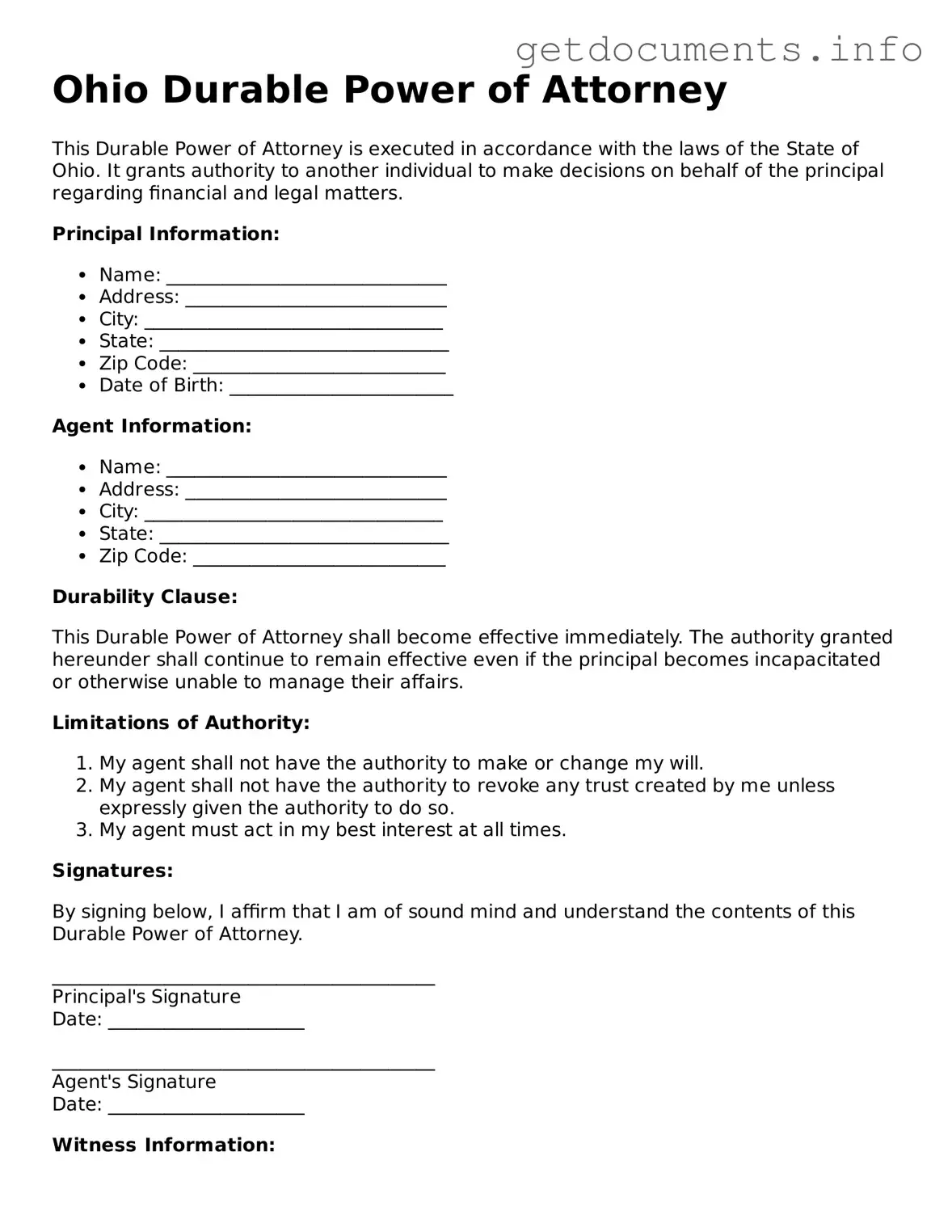Free Durable Power of Attorney Template for Ohio
The Ohio Durable Power of Attorney form is a legal document that allows an individual to designate another person to make decisions on their behalf, even if they become incapacitated. This form is crucial for ensuring that your financial and medical matters are handled according to your wishes when you are unable to do so yourself. To take control of your future, fill out the form by clicking the button below.
Access Durable Power of Attorney Editor

Free Durable Power of Attorney Template for Ohio
Access Durable Power of Attorney Editor
Got places to be? Complete the form fast
Fill out Durable Power of Attorney online and avoid printing or scanning.
Access Durable Power of Attorney Editor
or
⇩ PDF File
